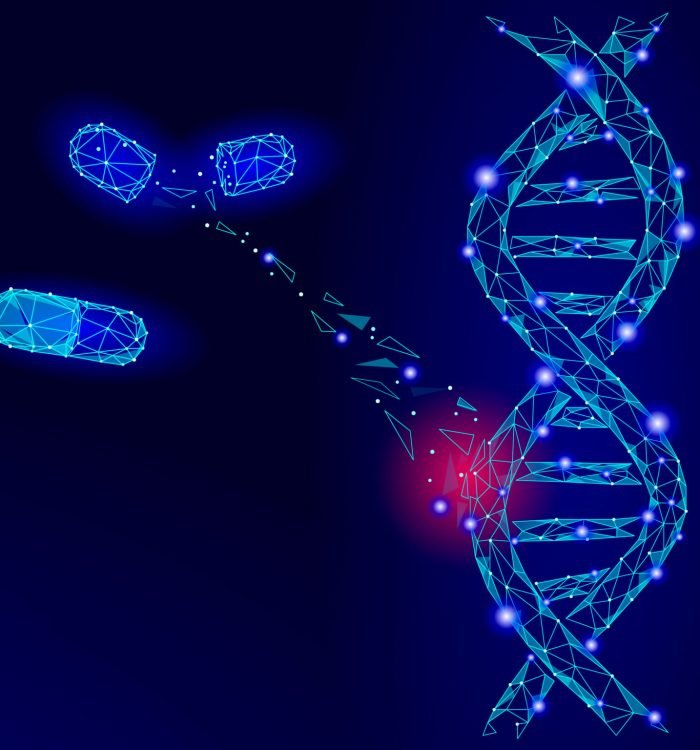Best Genetic Healthcare Hospital in Jaipur
We are proud to be the leading genetic healthcare service provider in Jaipur that is equipped to diagnose and treat a wide range of genetic disorders efficiently. Priyanka Hospital has a panel of qualified geneticists with rich experience in genetic profiling, genetic advice, and genetic therapies. Our specialists aim at delivering the best in genetic diagnostic services and management to affected patients and their families.
To provide excellent genetic health care to our patients, our hospital is well endowed with health care facilities and modern genetic testing equipment. To avoid any compromise of quality in the genetic testing services we offer, we ensure that we meet all the quality control measures and ethical practices.
Genetic sciences care in Jaipur are best availed at Priyanka Hospital which offers quality diagnosis, treatment, and care to the patients. Hire our team of experienced geneticists, avail the best genetic science services in the city, and get treated in the best genetic sciences hospital.

Why Choose Priyanka Hospital For Genetic Healthcare in Jaipur
Being the foremost genetic sciences hospital in Jaipur, Priyanka Hospital provides a vast array of genetic tests to diagnose and evaluate genetic disorders ranging from chromosomal disorders and inherited genetic diseases to susceptibility to specific diseases. We apply the sophisticate genetic technologies and molecular diagnostic systems to get the result as much precise as possible. As for patients’ needs, we offer genetic consultation and testing, as well as disease and condition risk assessment and treatment information. Our genetic counselors respond to patients with patience, education, and advice to assist patients in their healthcare decisions.
what is Genetic Science?
Genetic sciences also known as genetics, is the branch of biology that deals with genes, heredity, and genetic variation in a living organism. It includes a broad spectrum of approaches and methods designed for the identification of molecular basis for heredity, genetic linkage and genetic diseases. Some key areas of study within genetic sciences include:Some key areas of study within genetic sciences include:
1. Molecular genetics: Molecular genetics focuses on genes and their activities on the molecular basis with reference to DNA, RNA and proteins. Some of these techniques include DNA sequencing, PCR, gene cloning and gene expression analysis which are widely used in the analysis of genetic material and the regulation of genes.
2. Genomics: Genomics is the science that deals with the structure, function and comparison of the entire genetic material or genome within any organism. Genomic research is the systematic study of genomes, with the purpose of describing the differences in genomes, to determine the relation between genes and particular phenotypes or diseases, and to learn about the structure and function of genomes. Thus, the opportunities to sequence a genome or to perform a GWAS have significantly increased the awareness of genetic heterogeneity and complexity.
3. Genetic engineering: Genetic engineering on the other hand entails the deliberate alteration or creation of new characteristics in an organism by changing some of its genes. Methods like gene editing for instance CRISPR-Cas9 system, gene transplantation and recombinant DNA technology are applied in modifying organisms for different purpose including scientific, agricultural, biotechnology and medical purposes.
4. Population genetics: Population genetics studies the distribution of genes and differences in population, in addition to factors affecting the gene pool and alterations. Population geneticists analyze flow patterns of genes, neutral mutations, selection pressure, and gene change to understand the distribution and processes of genetic difference in populations.
5. Medical genetics: Medical genetics therefore concerns itself with the genetic make up of persons and predisposition to certain diseases. Medical geneticists provide a clinical service through making a diagnosis of a genetic disorder or inherited condition and providing genetic counselling and management of patients with chromosomal abnormalities. Diagnostic testing, consultation and therapy are considered to be the major aspects of the medical genetics field.
6. Evolutionary genetics: Evolutionary genetics concerns itself with genes and molecular processes that underlie evolution and the mechanisms of evolution such as selection, drift, mutation and speciation. Population geneticists and evolutionary geneticists look at genetic variation within and between species in order to understand the causes of the variation and patterns of the formation of species and the genetic mechanisms of adaptation and evolution.
7. Developmental genetics: Developmental genetics studies how genes control development and differentiation in organisms, including embryonic development, and other developmental stages. Developmental geneticists investigate the processes by which genes control cell differentiation, tissue and organ organization, as well as the processes of morphogenesis and organogenesis to comprehend developmental genetics and teratogenesis.
In general, genetic sciences are crucial in the study of inheritance, evolution, as well as the molecular nature of life. The meaning of genetics is not a small one because this research has its application in medicine, agriculture, conservation biology, biotechnology, and other fields with the aim of fixing human problems.
Explore Our Main Service
Cardiac Sciences
Clinical Diagnostics
Kidney Transplant
Critical & Intensive Care
Gynecology & Obstetrics
Neuro Sciences
Cosmetic Surgery
Spine & Scoliosis
Liver Care
Paediatric Cardiology
Genetic Sciences
ENT Surgery
Joint Replacement
Orthopaedics & Trauma
Pulmonology
Arthroscopy Sportsmedicine
IVF
Dental Sciences
Pain Clinic
Nephrology
Paediatrics
Health Checkup
Urology
Gastro Sciences
Dermatology
Emergency Medicine
Physiotherapy
Sleep Disorder
FAQs on Genetic Sciences
What are Genetic Sciences, and what do they involve?
Genetic Sciences encompass various disciplines dedicated to the study of genes, genetic variation, and heredity. This includes genetics, genomics, molecular biology, bioinformatics, and genetic counseling. Genetic scientists investigate the structure, function, and regulation of genes, as well as the role of genetic factors in health, disease, evolution, and behavior.
What are the applications of Genetic Sciences in medicine and healthcare?
Genetic Sciences play a crucial role in understanding the genetic basis of inherited diseases, identifying genetic risk factors for complex diseases (such as cancer, cardiovascular disease, and neurodegenerative disorders), predicting individual responses to medications (pharmacogenomics), guiding personalized treatment strategies (precision medicine), and screening for genetic conditions through prenatal testing, newborn screening, and carrier screening.
What technologies are used in Genetic Sciences?
Genetic scientists utilize a wide range of technologies and techniques to study genes and genetic variation. These include DNA sequencing technologies (such as Sanger sequencing, next-generation sequencing, and third-generation sequencing), polymerase chain reaction (PCR), DNA microarrays, gene editing tools (such as CRISPR-Cas9), bioinformatics software for data analysis, and various molecular biology and cell culture techniques.
What ethical and social considerations are associated with Genetic Sciences?
Genetic Sciences raise important ethical, legal, and social issues related to privacy, consent, genetic discrimination, informed decision-making, and the implications of genetic testing and genomic information for individuals, families, and communities. These include concerns about the use of genetic information in insurance, employment, and reproductive decision-making, as well as questions about access to genetic testing, genetic counseling, and healthcare resources.
How can Genetic Sciences contribute to research and innovation?
Genetic Sciences drive research and innovation in diverse fields, including biomedicine, agriculture, forensics, conservation biology, anthropology, and evolutionary biology. They enable researchers to explore fundamental questions about the genetic basis of life, biodiversity, and disease, develop new diagnostic tools and therapeutic interventions, improve crop yields and food security through genetic engineering, and understand human ancestry and evolution through population genetics and ancient DNA analysis.
Still Have a Question?
If you cannot find answers to your queries, please fill out the enquiry form or call the number below. We will contact you shortly
